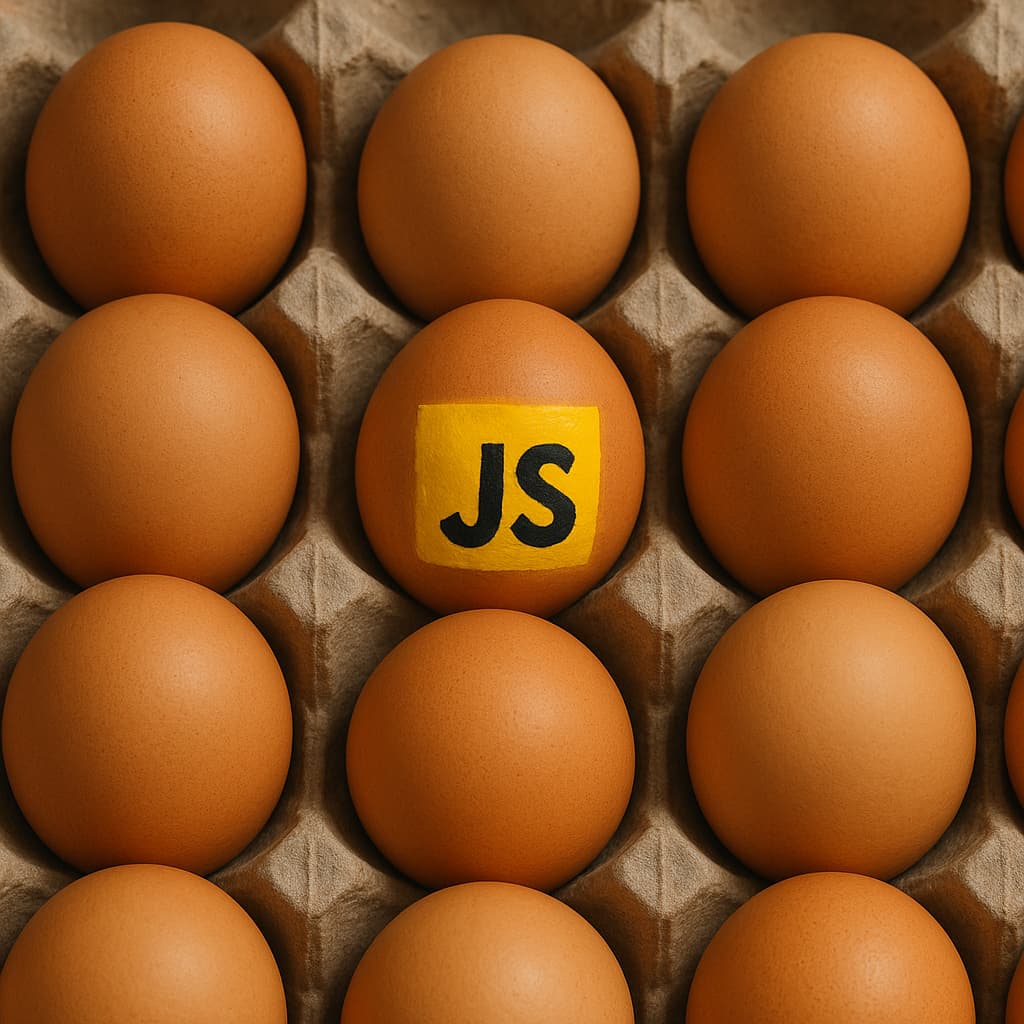-

JavaScript History and Evolution
• ⏱️ 10 min
JavaScript's history is the history of the web itself: born in haste in 1995, it grew in the midst of chaos and matured through experimentation. What began as an improvised language to bring web pages to life ended up expanding to servers, mobile devices, and distributed environments, from Netscape and V8 to Node.js, TypeScript, Deno, and Bun.
-

Expressions and statements, what's next?
• ⏱️ 8 min
Behind every line of code there is an invisible hierarchy, expressions that form statements, statements that compose algorithms, and algorithms that, when scaled, become libraries or frameworks. Understanding this composition not only helps write better code, but also recognize when something stops being an isolated function to transform into a tool, a framework, or even a product.
-

Is programming for me?
• ⏱️ 6 min
Programming isn't just for math geniuses or those who grew up with video games. It requires curiosity, discipline, and the habit of solving problems. Discover if this path, full of challenges and constant learning, could be the ideal career for you.
-

What is programming useful for?
• ⏱️ 7 min
When I started this career and someone asked me what programming is useful for, I answered without thinking much: to make web pages. Over time I understood that programming is useful for much more, and I'm convinced that, in a few years, it will be as essential as knowing how to use spreadsheets.
-

What do I need to know before programming?
• ⏱️ 8 min
Before starting to program, you don't need to be a genius or memorize formulas; just follow three pillars that simplify the path: learn to read documentation, review high school math, and maintain endless curiosity to adapt to constant technological changes. Let's see why, with these foundations, anyone can take their first steps with confidence.
-

Designing an Algorithm
• ⏱️ 10 min
We previously mentioned that an algorithm is a set of instructions to perform a task. However, they don't always execute linearly. Some require taking different paths or executing at different times. Let's explore a more appropriate way to design these algorithms.
-

Types of programming languages
• ⏱️ 8 min
Just as people speak various languages, in programming there are multiple languages, each with specific characteristics and purposes. Programming languages can be categorized into several paradigms, such as imperative, declarative, object-oriented, functional, procedural, and logical.
-

How does a programming language work?
• ⏱️ 13 min
Programming languages process data and manage flow through expressions and statements. Expressions combine values, operators, and variables to produce results, while statements perform actions. These components transform instructions into practical solutions, ranging from simple calculations to complex systems.
-

Algorithms with cards: Binary search
• ⏱️ 4 min
The binary search algorithm, or "Binary Search", is an efficient method for finding an element in an ordered list. It repeatedly divides the search range in half, significantly reducing the number of comparisons needed.
-

Algorithms with cards: Bubble sort
• ⏱️ 6 min
The bubble sort algorithm, or "Bubble Sort", is a simple method for sorting lists. It compares and swaps adjacent pairs if they are out of order, repeating the process until no more swaps are needed. It's ideal for its simplicity and efficiency in small lists.
-

What is an Algorithm?
• ⏱️ 5 min
An algorithm is a set of instructions or steps that are followed to solve a problem or carry out a particular task. So, a manual for assembling a prefabricated piece of furniture or a cooking recipe could be considered algorithms.